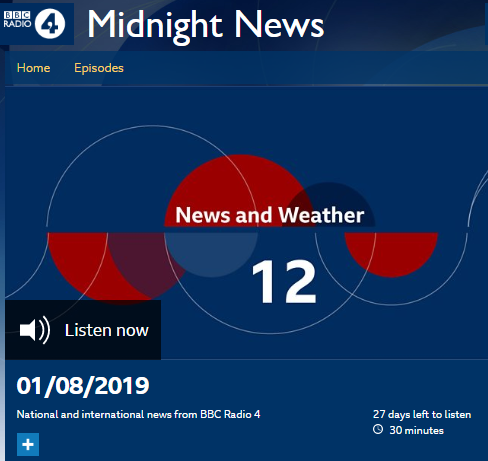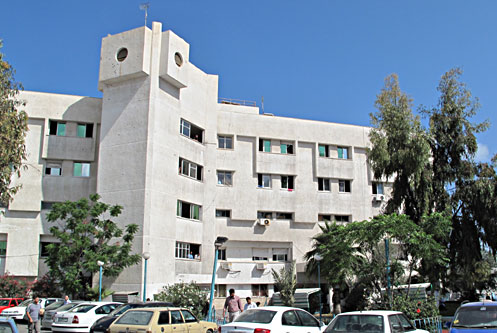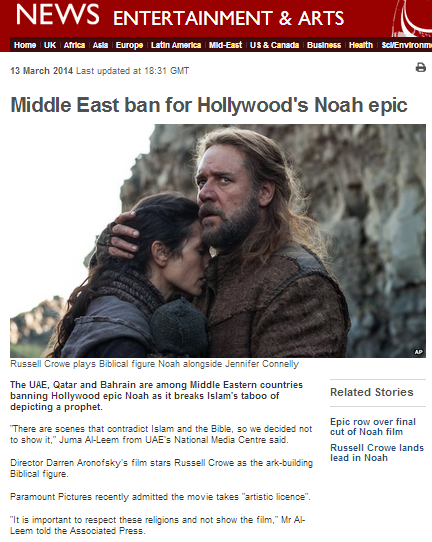On the same day that the BBC News website published a highly partial report on the topic of new Israeli building permits, listeners to the July 31st evening edition of the BBC World Service radio programme ‘Newshour’ heard presenter James Coomarasamy introduce the final item (from 48:49 here) with the claim that security cabinet approval for those permits came a day later than was actually the case.
[emphasis in italics in the original, emphasis in bold added]
Coomarasamy: “Now let’s hear about some developments in the Middle East because President Trump’s son-in-law and Middle East envoy Jared Kushner has been meeting Israel’s prime minister Benjamin Netanyahu today. The meeting comes on the day when the Israeli government gave rare approval for the building of 700 Palestinian homes in a part of the occupied West Bank, along with permission for another 6,000 homes for Jewish settlers. The Palestinians bitterly oppose Jewish settlement building and they say this permission is simply another land seizure.”
Seeing as any building would likely take place within the boundaries of existing communities, that claim of a “land seizure” is clearly far fetched and Coomarasamy’s suggestion that the security cabinet approval stipulates the religion/ethnicity of potential residents is equally inaccurate. He went on:
Coomarasamy: “Omar Hajajrei [phonetic] lives in the affected area.”
Listeners were not informed who that interviewee is, to which organisation – if any – he belongs or what makes him qualified to comment on the topic besides his place of residence.
Voiceover translation from Arabic: “This is a lie and it’s only for the media. It’s an excuse to build settlements and to have a barrier of settlements around Jerusalem as you can see in front of us. There are around 1,500 residential units. They started six months ago and look how much they’ve built so far. They will build all around the mountain. It is a lie. Even if they will give permits, they will not give it the right way.”
Coomarasamy: “I’ve been discussing this decision with Raphael Ahren, a diplomatic correspondent of Times of Israel.”
The ‘analysis’ that listeners heard from Raphael Ahren commenced – and continued – with pure speculation.
Ahren: “It is quite unusual. Usually it’s not the security cabinet who debates and decides these issues. It doesn’t need security cabinet discussions. The word here in Israel is that Netanyahu decided to bring this topic up for discussion among the ministers so he can sort of share the blame. If people criticise them for it he can say ‘well all the ministers in the cabinet bear responsibility for that decision and it’s not just me’.”
Coomarasmay: Why might he have decided to go ahead with it?”
The answer to that question was no more evidence based.
Ahren: “Well nobody really knows. There are several theories going around. I’ll offer you two theories. One is that the American administration which is preparing to release its Israeli-Palestinian peace plan has asked him to do so.”
However Ahren then admitted that not only does he have nothing to support that speculation but it has actually been refuted.
Ahren: “This evening the US ambassador David Friedman and his people say that they made no such request and that they didn’t even hint at it. But sometimes, people say, you don’t even have to make an explicit request. Everybody knows that as the Trump administration releases its probably pro-Israel peace plan, it probably looks good to have this gesture for the Palestinians.”
Ahren then presented more evidence-free speculation:
Ahren: “The second reason I would offer had nothing to do with the Americans, had nothing to do with the forthcoming peace plan but rather with the fear of litigation in the International Criminal Court in the Hague. I heard reports tonight that the special prosecutor is in the final stages of her decision-making process whether to proceed from the currently ongoing preliminary examination in the situation in Palestine to a full-fledged investigation. According to that logic the settlements are a war crime and if then Israel only ever advances housing for Jewish residents but not for Palestinian residents of the West Bank it wouldn’t look good, it would kind of provoke her.”
Coomarasamy made no effort to question the assertion that the ICC bases its decisions on whether or not it is ‘provoked’ and Ahren continued:
Ahren: “You might have heard even last week it made international headlines that Israel demolished illegal structures in the West Bank. I toured the West Bank today where settlement leaders have different opinions on this but some people are actually saying in a world where everything’s forbidden, everything’s allowed. If we never give permits for them to build we cannot expect them not to build and then it doesn’t look good if we only destroy and we don’t let them build.”
Coomarasamy: “If it is the first of the two theories you put forward and it is a bone, as you put it, to be thrown to the Palestinians, is it one that they’re likely to touch?”
Ahren: “Well yeah I mean of course they want to be a building for their people so it’s not something that they’re going to reject. I may say, some of these houses may already have been built and these permits are sort of coming retroactively. Palestinians, as I mentioned, do not get a lot of permits to build in the West Bank and there is natural growth of the Palestinian population there and therefore a lot of illegal structures are going on. These 700 permits might just be used sort of to legalise them after the fact.”
How the BBC can possibly claim that those unsupported speculations would help BBC audiences understand the story is of course unclear and listeners to BBC Radio 4’s Midnight News on August 1st (from 22:10 here) did little better.
Newsreader: “Israel has given rare approval for 700 Palestinian homes in the occupied West Bank. It also said that 6,000 homes could be built for Jewish settlers. The announcement was made as President Trump’s son-in-law Jared Kushner arrived in Jordan to drum up support for US attempts to broker an Israeli-Palestinian peace deal. From Jerusalem, here’s our Middle East correspondent Tom Bateman.”
Tom Bateman of course recited the BBC’s usual partial mantra on ‘international law’.
Bateman: “The government decision gives the go-ahead for a significant number of new homes in settlements – which are seen as illegal under international law – and is said to further extend Israeli presence in the occupied West Bank. But it is Israel’s approval for Palestinian homes that is unusual. It is not clear whether these would be 700 new constructions or merely legal consent for existing homes in what is known as Area C. Here, Israel has full control and builds new settlement houses but new Palestinian homes are frequently demolished as Israel virtually never gives them building permission.”
Bateman next amplified an obviously absurd Palestinian claim and presented listeners with yet another speculative theory.
Bateman: “The Palestinian leadership called the announcement piracy. The timing, with Mr Kushner’s visit to the region underway, may be significant. The White House’s faltering attempts to deliver what Mr Trump has called ‘the ultimate deal’ between Israelis and Palestinians is based on money and backing from Arab states. This may have been one way of trying to convince them to take part in the process and address the long-held criticism that the administration’s support is heavily weighted towards Israel.”
That, apparently, is what the BBC thinks it can pass off as “a range and depth of analysis and content not widely available from other United Kingdom news providers”.
Related Articles:
More repetition of the BBC’s partial narrative on construction
BBC News report omits significant information
BBC radio audiences hear one-sided reports from Yolande Knell




